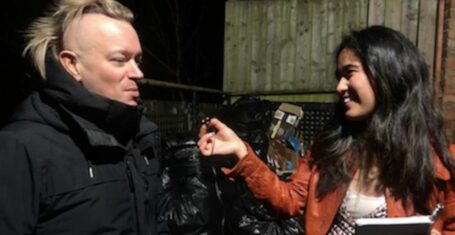
WIN £125 in The One Video, Photo and Writing Competition
The One is wants to see what you got. Send us your best Pull Cam pics, Coke and Mentos Videos and student life linked Articles to WIN £125
The One is giving its readers the chance to win £125 in 3 different competitions.
It’s really easy to enter. Simply create an account on the website and send us your entries. Winners also gets Durham One t-shirts.
Video – The One Diet Coke and Mentos Challenge
Our attempts over the weekend were enjoyable even if we didn’t produce the best bottle rocket. We are sure that you can do better.
Below is a great tutorial.
The rules are simple – introduce yourself at the start of the video and mention Durham One Coke and Mentos Challenge. The rest is up to you. Feel free to edit and spice up your videos but straight clips are fine too.
Photo Competition – Pull Cam
Pull Cam went down a storm. We want your entries. Its simple – the best pic gets £25.
Upload a photo –put Pull Cam in the title and write down where it was snapped. Easy.
Writing Competition
The One is always looking for new writers. The only rules are that your piece has to be linked to Durham life.
Accompanying pictures are a massive winner.
Remember a few simple rules. The best pieces involve going out and doing stuff. Leave your desk, take pictures and talk to people.
If you are struggling for ideas – do an investigation of some sort. Review your college food and take an angle on it. Why is College food so shit? Why is my College canteen so much better than any other?
The One also follows some basic style rules that can transform your writing. These will serve you for the rest of your life.
Tabloid journalism, amongst other things, is about conveying information as simply and powerfully as possible.
George Orwell, whose writing is known for its clarity, came up with a set of basic rules, which are a good starting point…
1. Never us a long word where a short one will do.
So prefer about to approximately, after to following, let to permit, but to however, use to utilise, make to manufacture, plant to facility, take part to participate, set up to establish, enough to sufficient, show to demonstrate and so on. Substantive often means real or big.
2. If it is possible to cut a word out, always cut it out.
• Less is more: keep articles short. Don’t worry about going into detail about boring points. If you’ve said everything relevant, don’t feel the need to keep going. News articles should be a maximum of 500/600 words for exclusives/complex issues; most will be around 300.
• A good example from The Sun:
o Police working for the Scotland Yard Anti-Terror unit have uncovered a British-based plot to murder the parents of a sniper from the Scots’ Army Regiment. Or…
o ‘Anti-terror cops foiled a British-based plot to kill the parents of a Scots Army sniper.’
• One word you should cut out is ‘that’ – it’s rarely needed. e.g. Jane discovered that she was pregnant.
3. Never use the passive where you can use the active.
Be direct. A hit B describes the event better than B was hit by A.
4. Never use a foreign phrase, a scientific word, or a jargon word if you can think of an everyday English equivalent.
Pretty self-explanatory really: a year or per year, not per annum; starters, not hors d’oeuvres. Shouldn’t be a problem.
5. Never use a metaphor, simile, or other figure of speech which you are used to seeing in print.
It’s fine to use phrases that might seem a bit clichéd, if they are relevant. So for example, protestors are ‘camped out’ if they are actually sleeping somewhere, but not if they’re just protesting for a long time.
When using these figures of speech, always ask yourself if it would be quicker and clearer to just tell someone what happened.
6. Break any of these rules sooner than say anything outright barbarous.









































